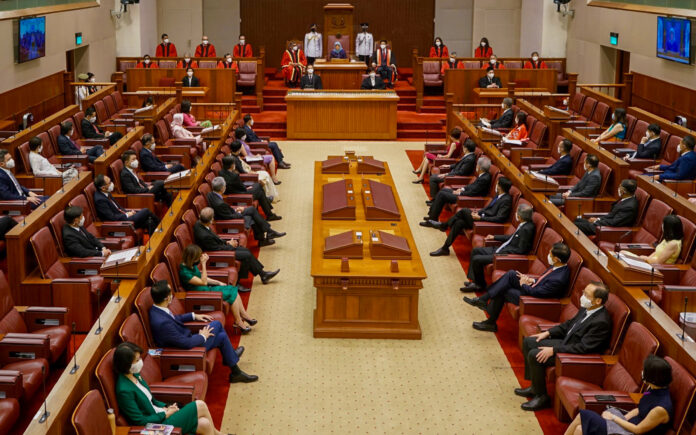Singapore, renowned for its political stability and clean governance, has been shaken by a series of rare political scandals. These recent events have shocked the city-state, known for its reputation for impeccable leadership and high moral standards. With the ruling People’s Action Party (PAP) at the center of these controversies, Singaporeans are now scrutinizing their long-standing trust in the party. As the scandals unfold, serious questions arise about the PAP’s ability to maintain exceptional governance and calls for transparency and accountability grow louder.
Unraveling the Scandals
Last week, Singapore witnessed an unprecedented event when a senior minister was arrested in a corruption probe. This marked the first time in four decades that a minister has been implicated in such an investigation, rattling the core of Singapore’s political landscape.
Adding fuel to the fire, on Monday, two prominent lawmakers, one of whom was once considered a potential prime minister, resigned after it was revealed they were involved in an extramarital affair. The Speaker of Parliament and his fellow lawmaker’s actions have brought significant public backlash, tarnishing the image of Singapore’s leaders.

Implications for the Ruling Party
The PAP, which has held power since 1959, faces a significant challenge in maintaining public support amid these scandals. With a large majority in parliament, the party has always emphasized high moral standards for its lawmakers. However, the close timing of these scandals and the ongoing corruption probe have heightened voters’ scrutiny.
While the PAP has weathered similar scandals in the past, the recent events cast doubt over the party’s claims to exceptional governance. The lack of robust mechanisms for holding powerful individuals accountable and the rejection of practices common in other developed jurisdictions have raised questions about Singapore’s political processes.
The Future of Leadership
Prime Minister Lee Hsien Loong, who has been in power since 2004, has frequently expressed his desire to retire. A successor, Lawrence Wong, has already been designated, but the recent events have led to questions about his readiness to lead. With Mr. Wong remaining relatively inactive in addressing the scandals, doubts have emerged about the city-state’s future leadership.
The Path Forward
As Singapore grapples with these political upheavals, citizens demand transparency, accountability, and restraints on authority. The PAP must work to regain public trust and uphold its reputation for clean governance. To restore faith in the party, adopting measures such as public disclosure of income and assets by political office holders and senior civil servants may be necessary.
Singapore, known for its stability and exemplary governance, is facing a critical moment as rare political scandals challenge the ruling People’s Action Party. The unfolding events have raised questions about transparency, accountability, and the future of leadership in the city-state. Singaporeans now watch closely as the PAP navigates through these challenges to regain their trust and uphold the principles that have guided the nation’s success for decades.





